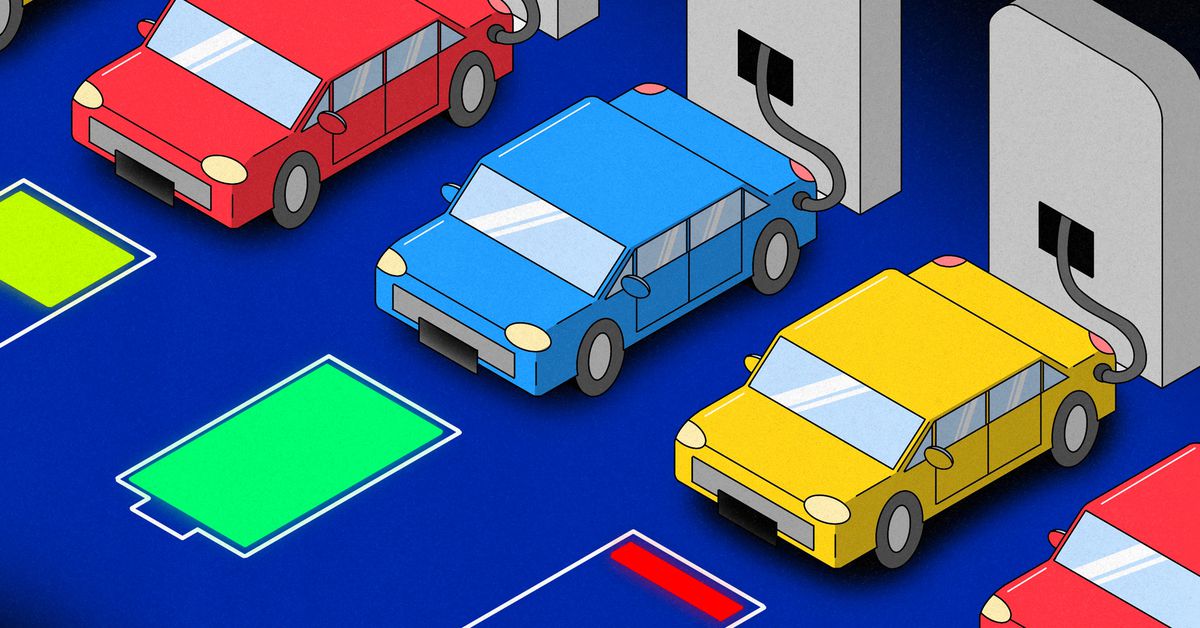
Republican lawmakers are attempting to overturn the twin pillars of the Biden administration’s climate platform: tax credits for electric vehicles and the Environmental Protection Agency’s new rules to curb tailpipe emissions.
The effort involves new bills introduced by members of Congress, as well as lawsuits filed by state attorneys general, all with the goal of rolling back the minimal progress made by the Biden administration to reduce the share of planet-warming carbon emissions produced by the automotive sector.
Last month, 25 Republican attorneys general filed a lawsuit intended to overturn the EPA’s recently finalized tailpipe rules aimed at slashing greenhouse gas emissions in half by 2032. In a statement, Kentucky Attorney General Russell Coleman accused President Biden of being “willing to sacrifice the American auto industry and its workers in service of its radical green agenda.”
Coleman and his Republican peers have help. Last week, Michigan Rep. John James introduced legislation to dismantle those same rules, arguing the standards are “a clear example of EPA overreach as it picks winners and losers by setting emission standards at a level that only electric vehicles can meet.”
The bill is now picking up steam with cosponsors, including Rep. Elise Stefanik (NY), the fourth-ranking Republican in the House, who called the EPA rule “radical.”
The EPA rules require automakers to build less polluting passenger vehicles starting in 2027, but they stop short of completely phasing out gas-powered vehicles. Still, several Democratic-controlled states, like California and Maryland, have pledged to ban the sale of new internal combustion engine vehicles by 2035.
Another attempt to stifle EV adoption comes from Senator John Barrasso (WY) who introduced legislation last week along with Senator Shelley Moore Capito (WV) to roll back federal tax credits for electric vehicle purchases. Supporters of the so-called “Eliminate Lavish Incentives To Electric (ELITE) Vehicles Act” claim it will keep China from exploiting loopholes in the Treasury Department that could give it access to taxpayer incentives.
The act also looks to defund investments in electric vehicle charging infrastructure. Biden’s infrastructure law commits $7.5 billion in spending to install a national network of EV charging stations. Wyoming state lawmakers have also attempted to ban the sale of EVs in the state by 2035 in response to lobbying by incumbent oil and gas companies.
Environmental groups are jumping in to defend the EPA and oppose efforts to overturn clean air policies, including the Environmental Defense Fund, which said that the EPA policies reduce deadly pollution and create good jobs. The EDF also points out that Kentucky specifically has benefitted $14 billion in investment and gained 14,000 jobs related to clean vehicles. Other environmental groups say the US risks falling behind China and other competitors in the global shift to EVs.
These GOP-led efforts could eventually make it to the Supreme Court, which has a conservative majority that has proven rather hostile to the idea of the EPA’s mission to reduce pollution. The court has already taken away a tool that helped the agency regulate power plant emissions.
Meanwhile, the Biden administration is allowing some leeway on rules governing what electric vehicle models can take advantage of a $7,500 federal tax incentive. In the final guidance, some automakers that have EV battery packs with imperceptible trace amounts of minerals like graphite that originate from China or other “foreign entities of concern” now have a two-year extension to fully adhere to the Inflation Reduction Act.
During the run-up to the November election, Republican politicians, led by former President Donald Trump, have seized on electric vehicles as a wedge issue in the ongoing culture wars. As a result, Republican voters routinely express disinterest in buying electric vehicles in recent surveys. Now they’re looking to reverse EPA policies and stifle electric vehicle adoption, despite evidence that robust EV adoption could improve air quality for children.
https://www.theverge.com/2024/5/6/24150041/ev-epa-clean-air-emissions-lawsuit-republicans-tax-credit

